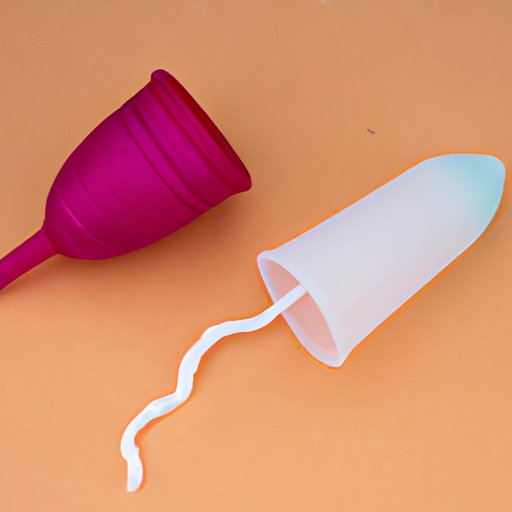
Introduction
Using tampons can be a convenient and comfortable way to manage menstrual bleeding. However, many women wonder how long they can leave a tampon in before it becomes unsafe. Proper use of tampons is crucial to avoid health risks like toxic shock syndrome. In this article, we will explore how long a tampon should be left in and discuss the importance of using tampons properly to maintain women’s menstrual health.
The Importance of Changing Tampons Regularly
Leaving a tampon in for too long can create an environment where harmful bacteria can grow, which can lead to serious health complications like toxic shock syndrome. This is because tampons absorb menstrual blood, which can be an ideal breeding ground for bacteria.
It is important to change a tampon every four to eight hours to avoid the risk of infection. Women who have a heavier flow may need to change their tampon more frequently. If you feel discomfort in your lower abdomen or notice any leakage, it may be time to change your tampon.
How to Determine When it’s Time to Change
There are several ways to tell when it’s time to change your tampon. You may feel discomfort or an oddly dry feeling, which can be a sign that the tampon is full. It is important to check the tampon by pulling on the string gently to see if it feels full. If there is any leakage, it is time to change the tampon immediately.
It’s also important to pay attention to your body and not rely solely on absorbency ratings. Every woman has a different flow, and it can vary from month to month. Therefore, it’s good to check your tampon regularly and change it as needed.
A General Guideline for How Often to Change
While the frequency of tampon changing depends on a woman’s flow and the absorbency of the tampon, there are some general guidelines. Here are some suggestions:
| Tampon Absorbency | Frequency of Changing |
|---|---|
| Light | Change every 4-8 hours |
| Regular | Change every 4-6 hours |
| Super | Change every 3-4 hours |
| Super Plus | Change every 2-3 hours |
Addressing Common Misconceptions About Tampon Wear Time
Some women may fall prey to common misconceptions regarding tampon use. One of these is that tampons can be safely left in overnight. However, even during sleep, tampons should not be left in for longer than eight hours.
Another myth is that leaving a tampon in during non-menstrual days is safe. However, it is never safe to leave a tampon in for extended periods, as this can lead to bacterial growth and infection.
It’s important to understand your own flow and body to determine when it’s time to change your tampon. Don’t rely on others’ opinions and gossip, as every woman’s body is different.
Promoting Alternative Menstrual Products
While tampons are a popular menstrual product, there are alternative options available that don’t require as frequent changes. Menstrual cups and period underwear are two such examples. These are environmentally friendly options that can save money in the long run, as they can be reused for several months.
Menstrual cups can be left in for up to 12 hours at a time, and period underwear can be worn for up to 12 hours as well. These products are becoming more widely available, and it’s worth giving them a try to see if they work for you.
Conclusion
Proper tampon use is crucial to maintaining women’s menstrual health. It’s important to change tampons regularly, pay attention to your body, and use alternative menstrual products if tampons aren’t right for you. By following these practices, women can stay safe, comfortable, and healthy throughout their menstrual cycles.




